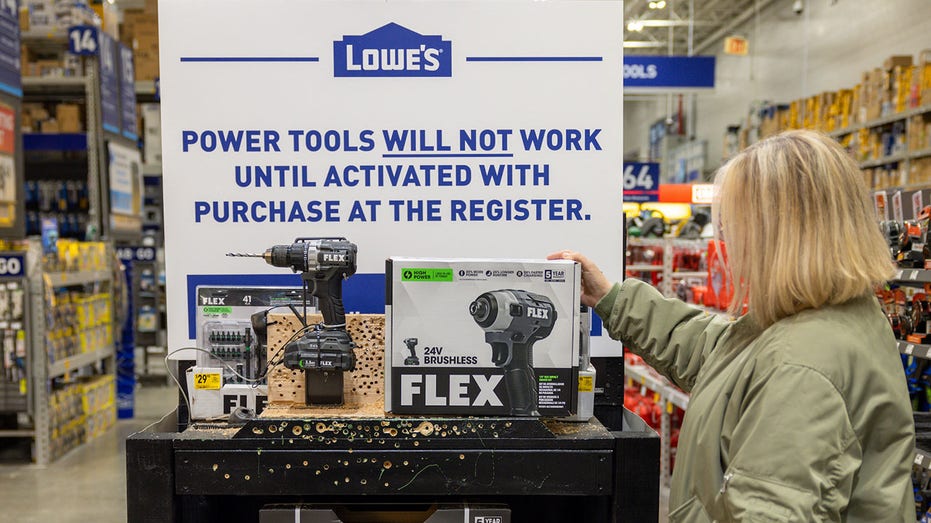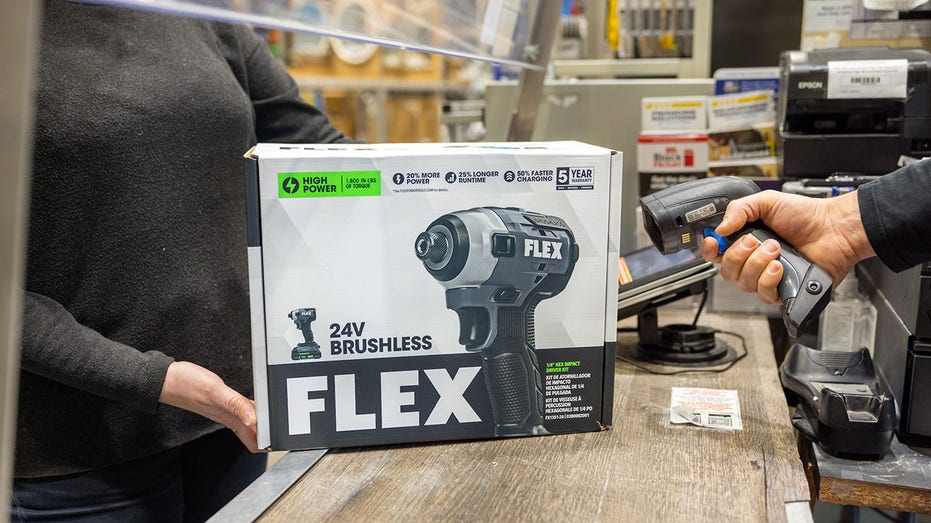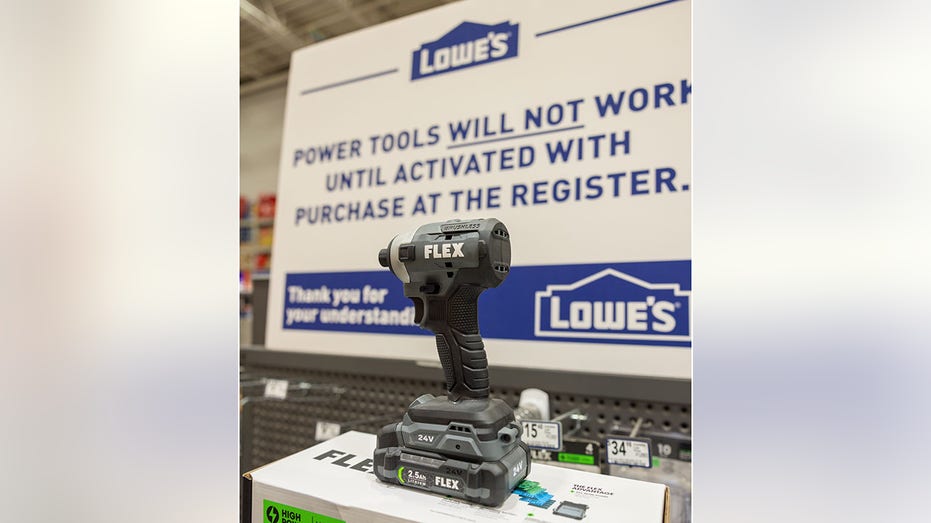Lowe's pioneers system to solve organized retail crime
Organized retail crime cost the industry almost $100B in 2021, the NRF reported
Lowe’s executive VP Seemantini Godbole on new anti-theft technology: This was a ‘scrappy experiment’
Lowe's Chief Digital and Information Officer Seemantini Godbole joined ‘The Big Money Show’ to discuss Lowe’s decision to create a new system intended to combat organized retail crime.
Lowe's Companies Inc. has innovated – and successfully tested – a new system geared toward tackling organized retail crime in a frictionless and almost invisible manner.
It's called Project Unlock, and it's a proof-of-concept system that underscores how there are methods to solving this industry-wide problem without having to lock up every product on the shelf, Lowe's Chief Digital and Information Officer Seemantini Godbole told FOX Business in an exclusive interview.
BUSINESSES TAKE DRASTIC ACTION TO PROTECT AGAINST RAMPANT SHOPLIFTING, ORGANIZED CRIME THEFTS
On average, there was a 26.5% increase in organized retail crime in 2021, costing the industry almost $100 billion, according to the latest data from the National Retail Federation (NRF).
So far, the solution has been to lock up products, which Godbole says is "disrupting an enjoyable experience that customers rightfully should have."
"As you can see, all the retailers are locking down stuff and putting physical locks on the product," Godbole said. "We said, ‘you know, we wish we had digital locks… we could enable and disable with technology.’"

Lowe's creates prototype to demonstrate how Project Unlock works using their in-house brand Flex. (Lowe's)
Lowe's demonstrated Project Unlock last week during NRF's 2023 expo in New York City, hosted in conjunction with the Loss Prevention Research Council. Its goal is to prove that technology can be leveraged to solve organized retail crime without hindering the shopping experience for law-abiding citizens.
Over the last 12 to 18 months, Lowe's Innovation Labs has been testing out the system which utilizes RFID [Radio Frequency Identity] chips, scanners and blockchain.
If implemented, it would render a stolen tool inoperable which would discourage bad actors and in turn, keep employees safe, according to Godbole.

Lowe's creates prototype to demonstrate how Project Unlock works using their in-house brand Flex. (Lowe's)
To work, manufacturers would first have to embed a wireless RFID (Radio Frequency Identity) chip into a power tool product. The chip is already preloaded with the item's serial number. It is also embedded in the box’s barcode.
The product is set to inoperable up until the moment the customer pays for it. An RFID scanner at the register would then read the chip and activate the tool for use.
Solving organized retail crime requires a strong ‘coordinated effort’: Matt Shay
National Retail Federation President Matt Shay reacts to the report that organized retail crime was up by 26.5% annually in 2021 on ‘Varney & Co.’
"Only products that are legitimately purchased are activated," according to Lowe's Innovation Labs. "If a power tool is stolen, it won’t work, which makes it less valuable to steal."
If implemented, the idea is that word will spread "pretty quickly that stealing these tools this way is not worth it because it'll never work," Godbole said.
| Ticker | Security | Last | Change | Change % |
|---|---|---|---|---|
| LOW | LOWE'S COMPANIES INC. | 276.89 | -1.49 | -0.54% |
Customers don't do anything different. If the tool was legitimately purchased, it will be ready for use the moment you walk out of the store, according to Godbole.
The process is essentially "invisible for the customer," she continued. "They should not even know that there's anything extra happening."
ORGANIZED RETAIL THEFT NEEDS STRICTER PENALTIES, US CHAMBER OF COMMERCE TELLS CONGRESS
Once a customer purchases the product, the transaction will also be recorded on the blockchain.
This record, which doesn't involve any personal data, can then be used by retailers and law enforcement officials to validate an authentic purchase.

Lowe's creates prototype to demonstrate how Project Unlock works using their in-house brand Flex. (Lowe's)
Godbole said this system isn't meant to necessarily replace asset protection teams but rather help them "combat this [organized retail crime] more effectively" without putting associates in harm's way, she added.
"We want our associates to be safe," Godbole said. "Organized retail crime is happening..in the broad daylight, in the presence of associates and other customers."
GET FOX BUSINESS ON THE GO BY CLICKING HERE
Now that Lowe's has proven this system works, the company is trying to work with leaders in manufacturing, retail, tech, loss prevention and law enforcement about adopting ways to enhance the transparency of legitimate purchases just as Project Unlock demonstrates.






















